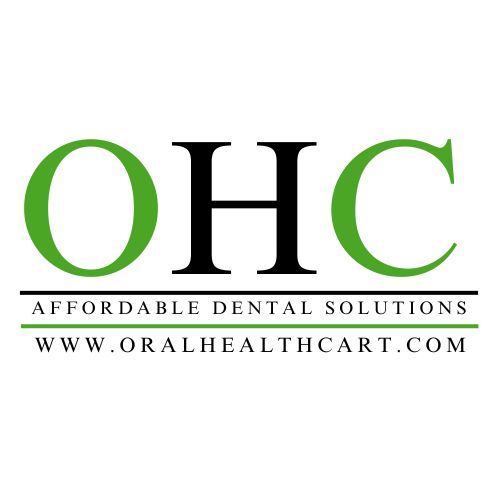Budgeting Tips For Your First Dental Clinic Setup
The Dental Cart
.jpg)
Budgeting Tips For Your First Dental Clinic Setup
Starting your own dental clinic is an exciting milestone in your professional journey. It’s a chance to turn your vision of quality patient care into reality while establishing your personal brand in dentistry. However, opening a clinic also comes with one big challenge—budgeting. From purchasing dental equipment to designing your operatory, every decision impacts your startup costs and long-term success.
At Oral Health Cart, we understand how overwhelming it can be to balance quality with cost efficiency. That’s why we’ve created this guide on Budgeting Tips for Your First Dental Clinic Setup—to help you plan wisely, spend smartly, and build a practice that’s both functional and financially sustainable.
1. Start with a Detailed Financial Plan
Before spending a single rupee, outline a comprehensive budget plan. Identify your startup costs (equipment, furniture, permits, marketing) and recurring expenses (salaries, maintenance, rent, and utilities). A well-defined financial plan should include:
-
Initial setup costs: Land or lease, clinic renovation, interiors, and signage.
-
Clinical setup costs: Dental chairs, X-ray units, sterilizers, and other essential instruments.
-
Operational expenses: Staff salaries, consumables, and utilities.
-
Marketing and branding: Website, social media, and promotional materials.
A clear budget roadmap will help you prioritize essential expenses and prevent overspending.
2. Decide Between Owning or Renting Space
The clinic’s location and property type can significantly affect your overall budget.
-
Owning: Buying property is a long-term investment but requires high upfront capital.
-
Renting: Leasing allows flexibility and lower initial costs but adds recurring expenses.
If you’re just starting out, consider renting a space in a busy commercial or residential area to minimize upfront costs and attract foot traffic. Once your practice grows, you can think about investing in a permanent property.
3. Choose the Right Dental Equipment Supplier
Your choice of equipment supplier can make or break your budget. Look for a trusted source like Oral Health Cart, where you can find high-quality, certified dental instruments and equipment at competitive prices.
When budgeting for dental equipment, remember to:
-
Compare brands and prices before purchasing.
-
Check warranty and service availability.
-
Invest in essentials first: Dental chair, autoclave, compressor, handpieces, scaler, and X-ray machine.
-
Avoid low-quality imports—cheap equipment may fail early and cost more in the long run.
Buying certified equipment ensures long-term reliability, safety, and compliance with clinical standards.
4. Prioritize Essential Instruments
As a new dentist, it’s tempting to buy everything at once—but that’s not always budget-friendly. Start with the basics and expand as your clinic grows.
Essential instruments to start with:
-
Diagnostic tools (mirrors, probes, explorers)
-
Basic surgical instruments (elevators, forceps, scissors)
-
Restorative tools (excavator spoons, carvers, condensers)
-
Scaling and polishing units
-
Sterilization equipment
Gradually, you can add advanced tools like apex locators, intraoral cameras, and rotary systems as your patient base and income increase.
5. Balance Quality and Affordability
When starting your clinic, cost control is important—but compromising on quality can hurt your reputation and patient trust. Instead, focus on value for money.
-
Choose ergonomic and durable equipment that ensures long-term performance.
-
Consider combo packages or bulk purchase discounts from suppliers like Oral Health Cart.
-
Look for financing or installment options if available, to spread out large payments.
A well-balanced approach ensures that every rupee you spend contributes to better patient care and smoother operations.
6. Plan for Technology Integration
Modern dental clinics rely on digital tools and smart devices for efficient workflow. However, technology comes at a price. Allocate a portion of your budget for essential digital systems like:
-
Dental management software for scheduling and records.
-
Digital X-ray systems or scanners.
-
Intraoral cameras for patient education and case documentation.
While these may seem optional at first, they improve patient experience, streamline workflows, and enhance clinic reputation—making them a worthwhile investment.
7. Budget for Staff Hiring and Training
Your team plays a vital role in your clinic’s success. Whether it’s an assistant, receptionist, or hygienist, their efficiency impacts productivity.
Budget for:
-
Staff recruitment and salaries.
-
Initial and ongoing training.
-
Uniforms and basic supplies.
Remember, skilled and well-trained staff reduce procedural errors and enhance patient satisfaction, helping your clinic build a solid reputation from day one.
8. Don’t Forget Maintenance and Sterilization
Maintenance costs are often overlooked in initial budgets but are crucial for long-term savings. Regular maintenance extends equipment lifespan and prevents expensive repairs later.
Ensure your budget includes:
-
Periodic servicing of dental chairs, compressors, and autoclaves.
-
Replacement of worn-out instruments.
-
Consumables for sterilization (pouches, disinfectants, etc.).
At Oral Health Cart, we emphasize quality sterilization products and maintenance kits that keep your clinic running smoothly and safely.
9. Marketing and Branding Investments
Your clinic won’t attract patients automatically—you need visibility. Set aside funds for marketing initiatives like:
-
Building a professional website and Google My Business listing.
-
Running social media campaigns to reach local patients.
-
Offering introductory discounts or referral programs.
Marketing is an investment that pays long-term returns by building patient trust and recognition in your community.
10. Keep a Contingency Fund
Even with meticulous planning, unexpected expenses can arise—repairs, additional licensing costs, or supply shortages. As a contingency reserve, set aside 10% to 15% of your whole budget. This safety net ensures you remain financially stable during the initial months of operation.
Opening your first dental clinic is a significant financial and professional step. Proper budgeting ensures a smooth setup, efficient operations, and a strong foundation for long-term growth. By prioritizing essentials, choosing the right suppliers, and maintaining financial discipline, you can launch a clinic that’s both affordable and high-quality.
At Oral Health Cart, we’re more than just an equipment supplier—we’re your partner in building a successful dental practice. From affordable dental chairs to premium surgical instruments, we help new dentists make smart, budget-friendly choices without compromising quality.
Categories: Prostho Instruments


 Oralhealthcart Products
Oralhealthcart Products

